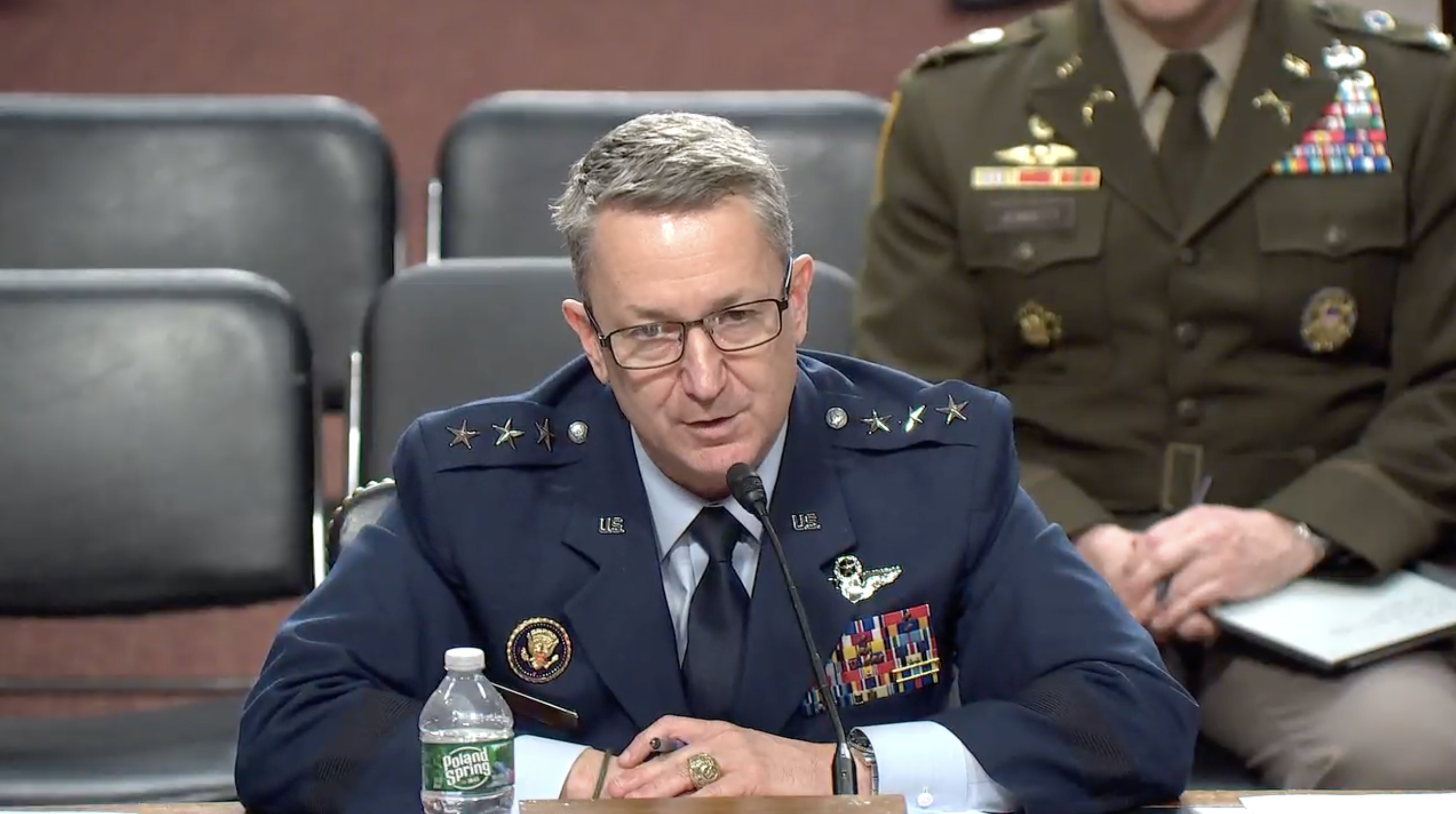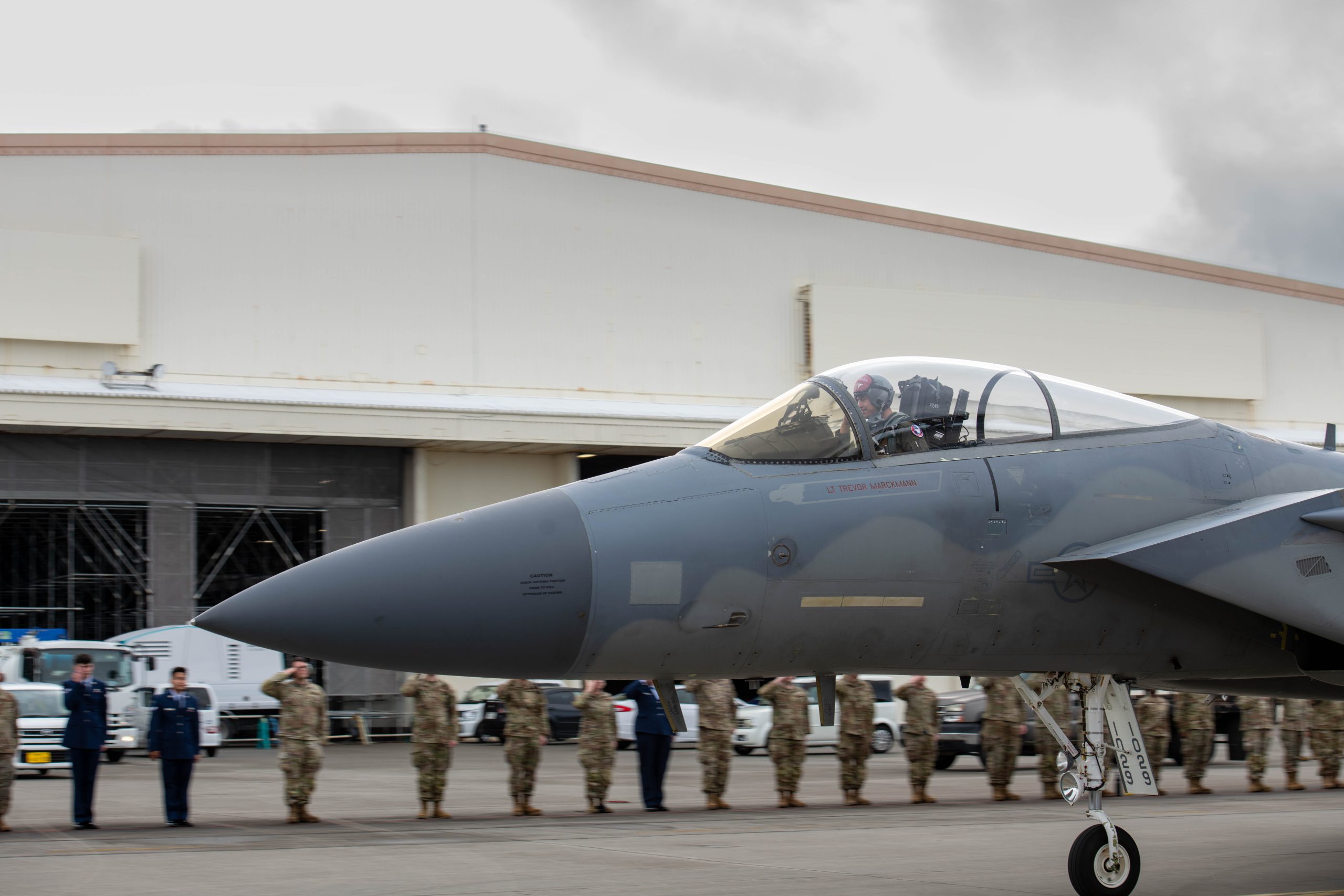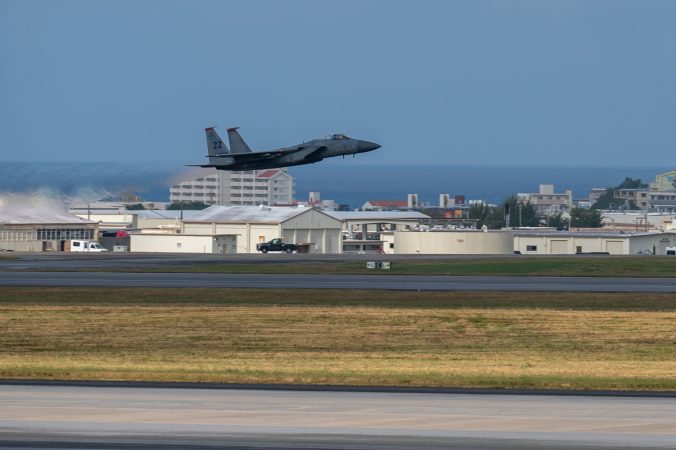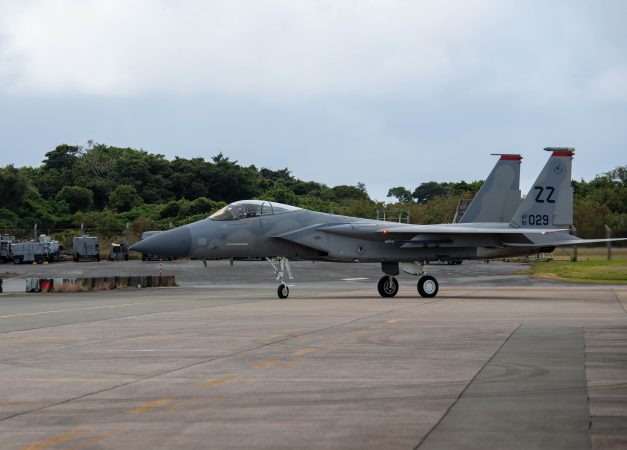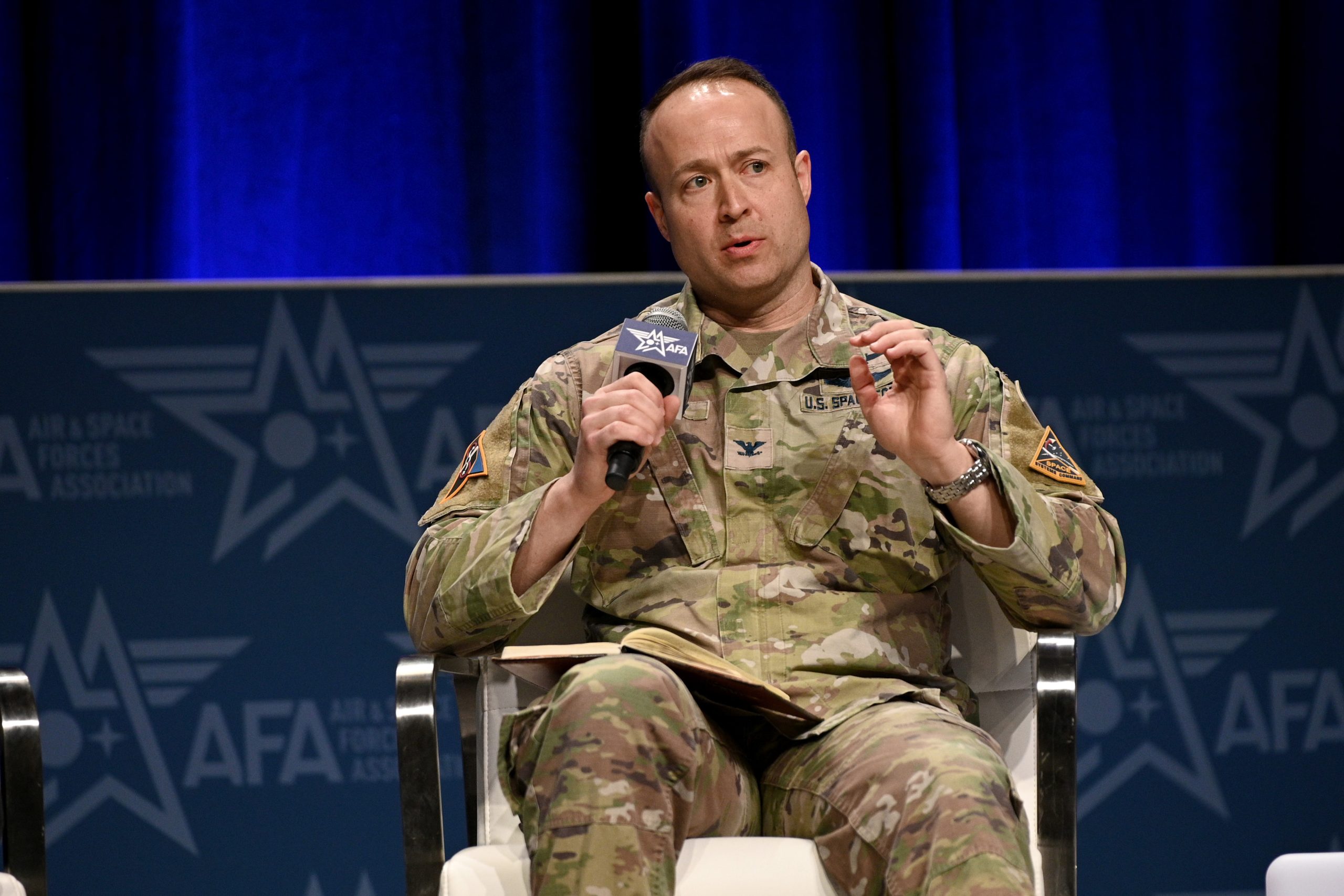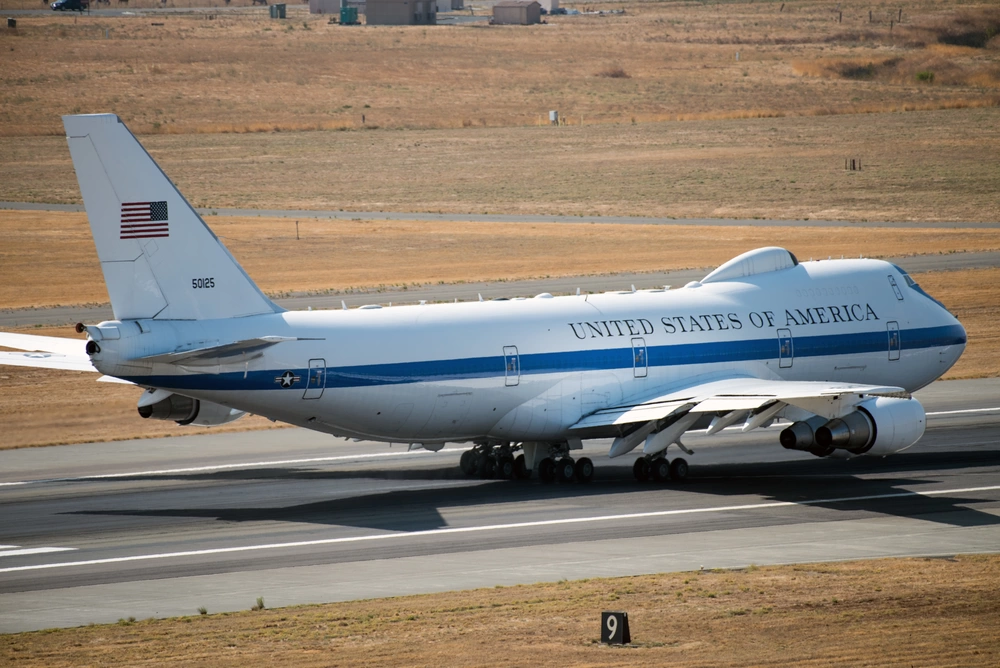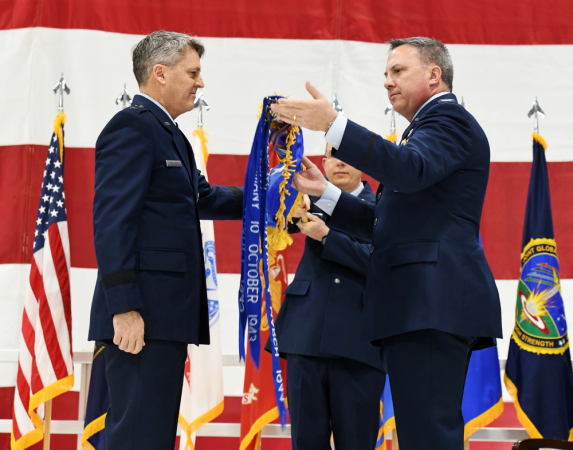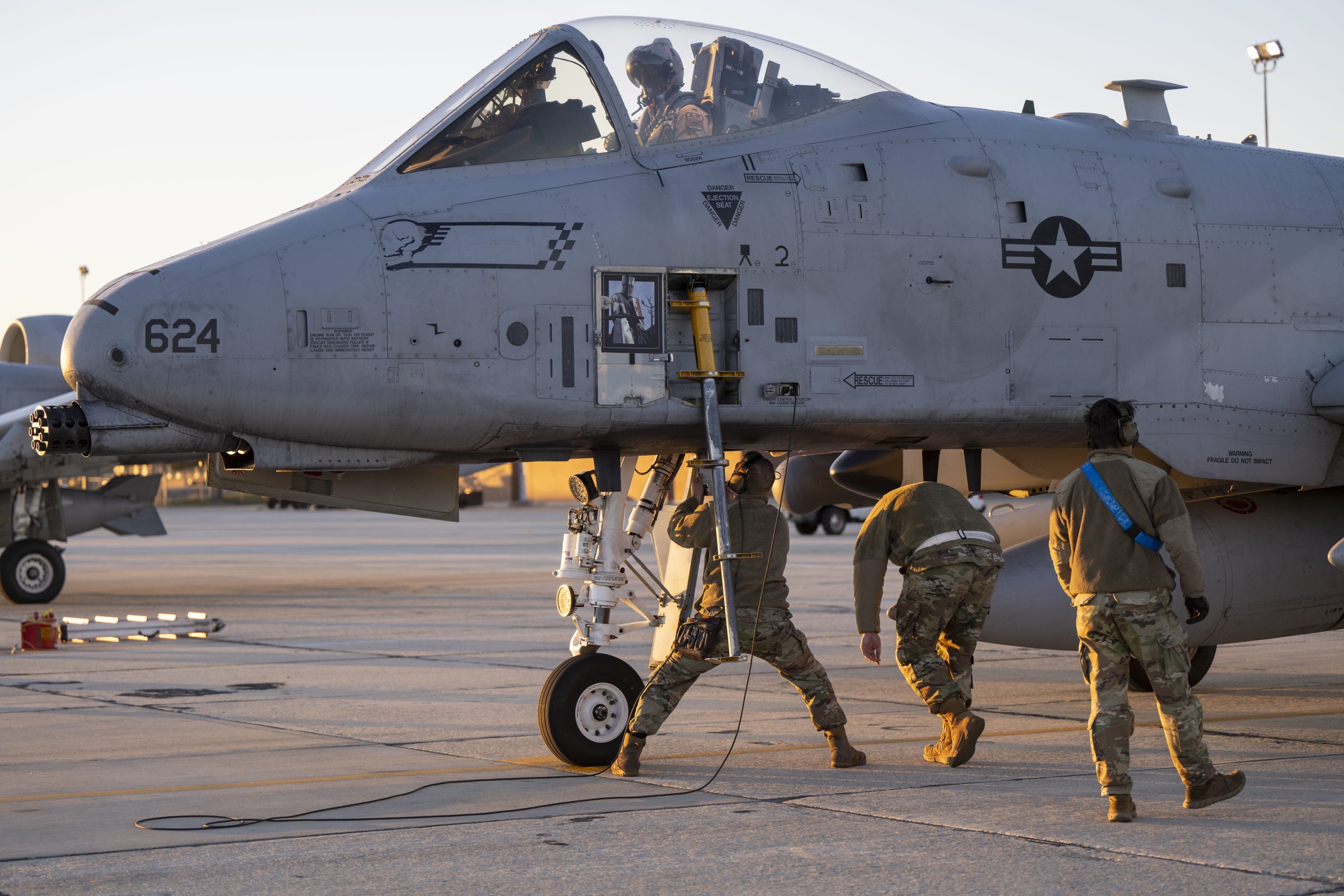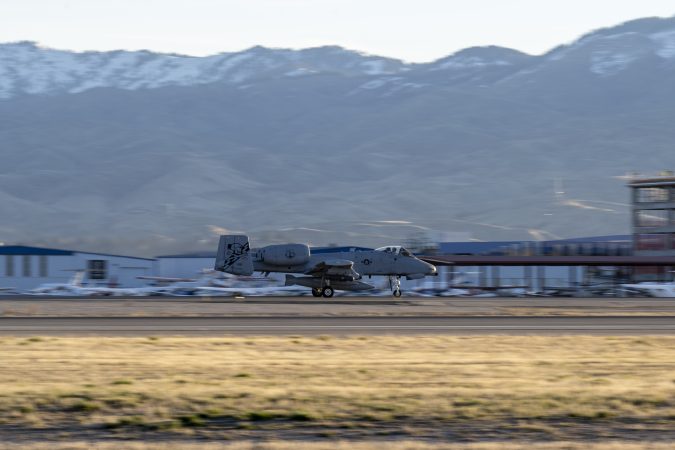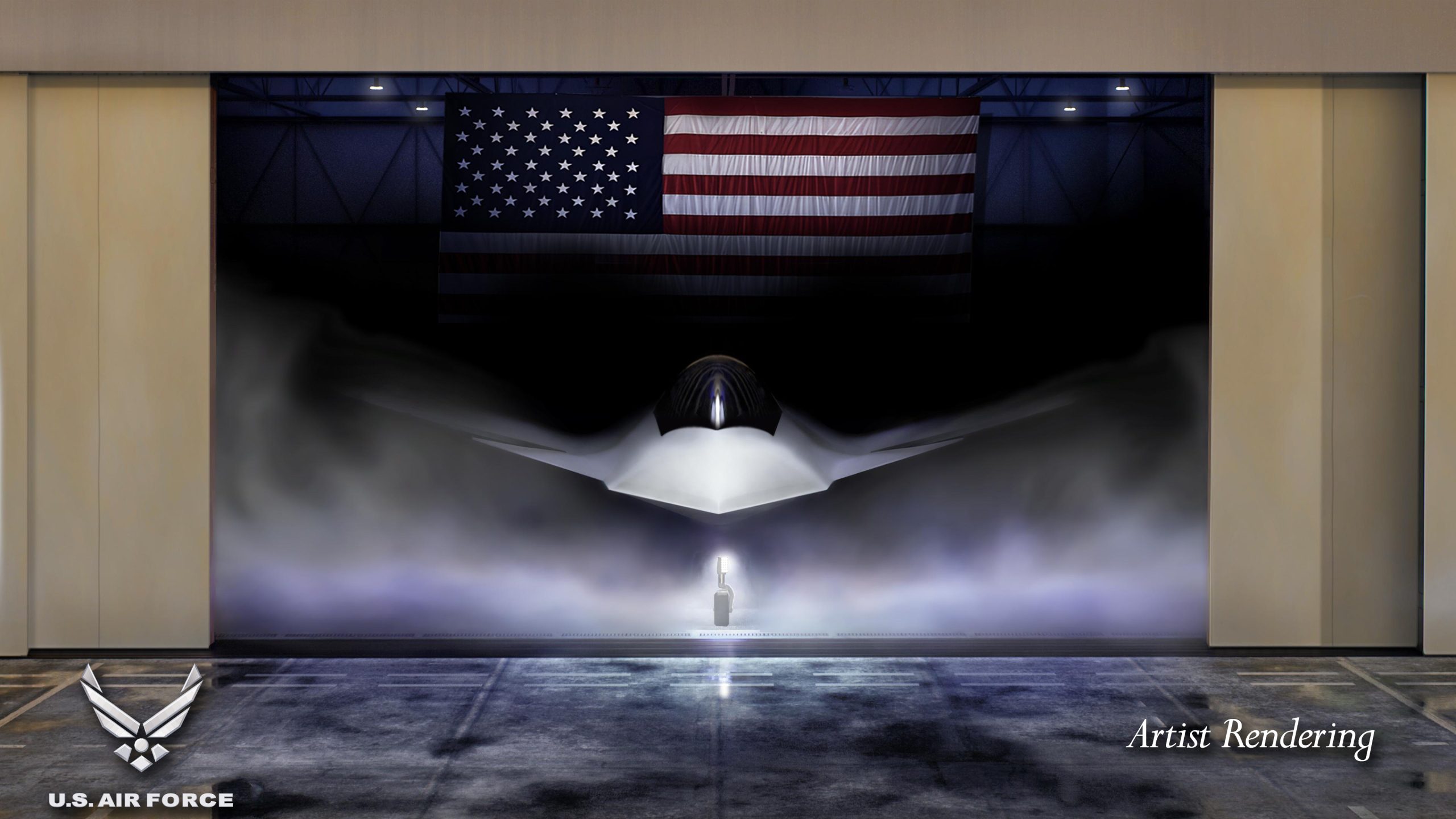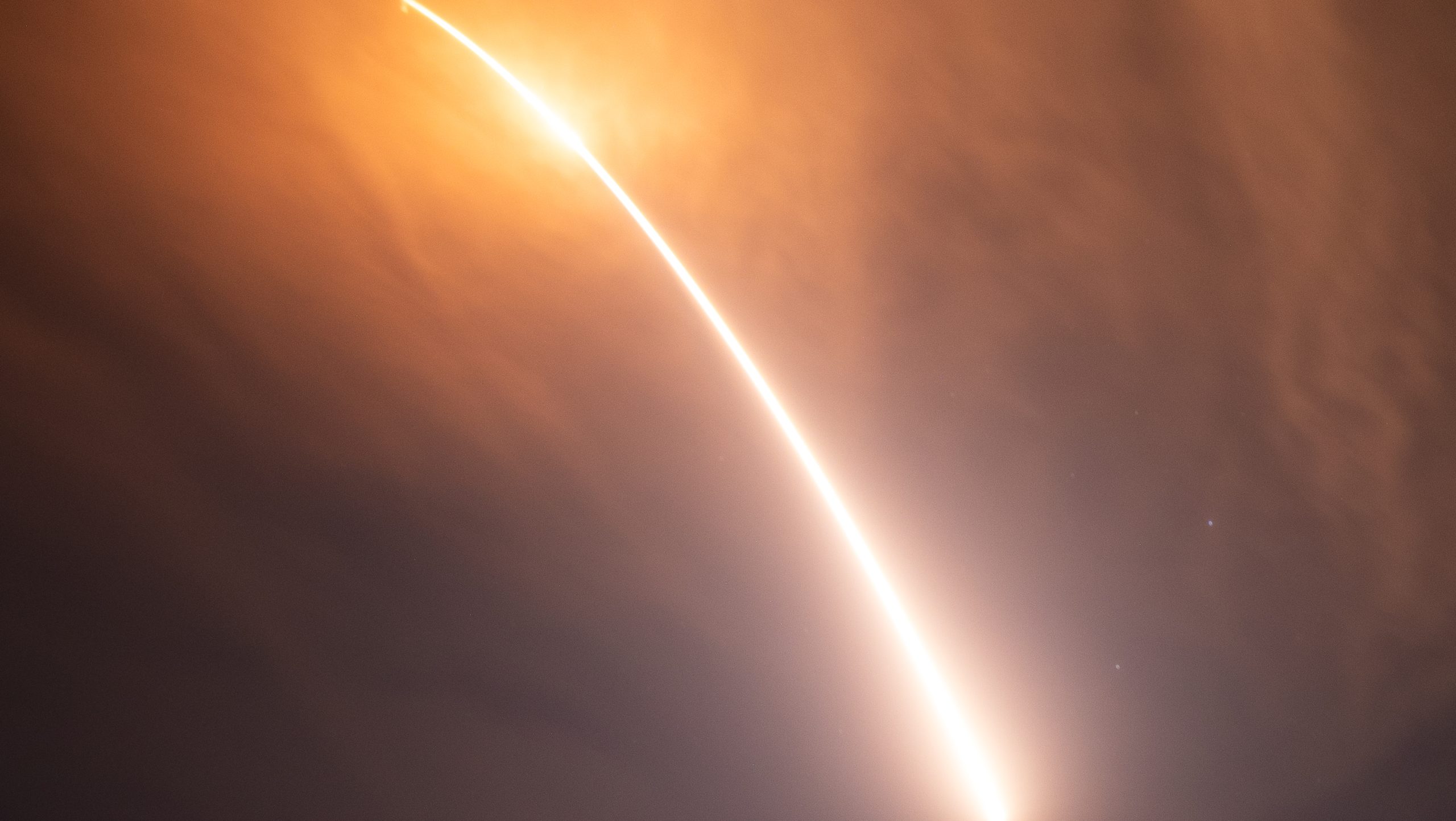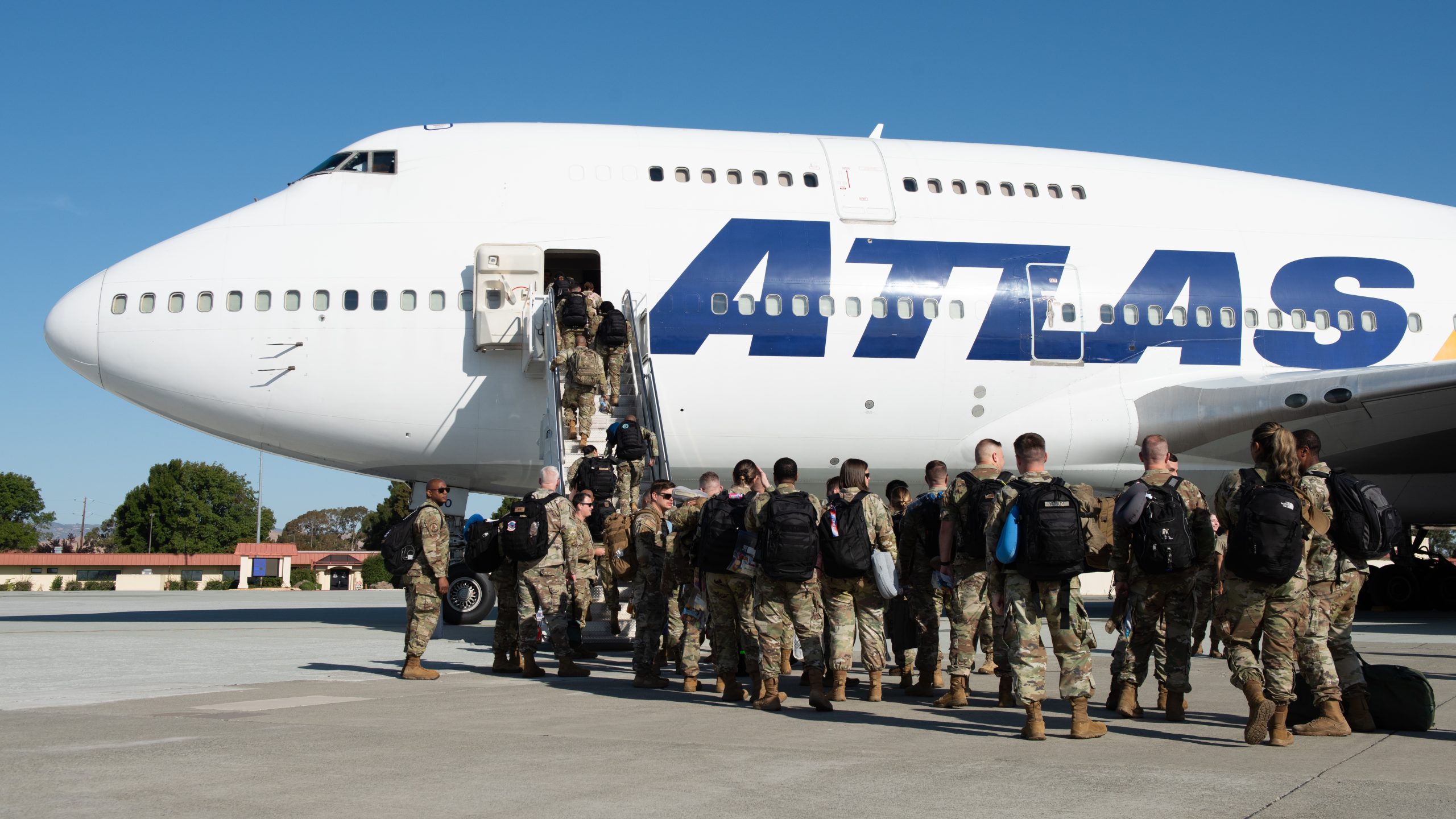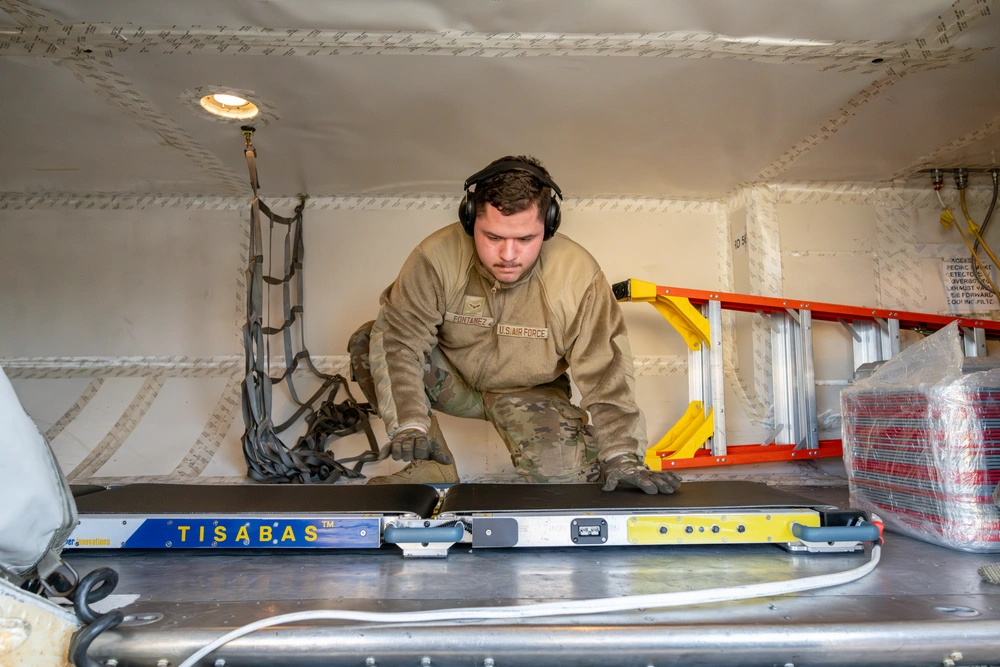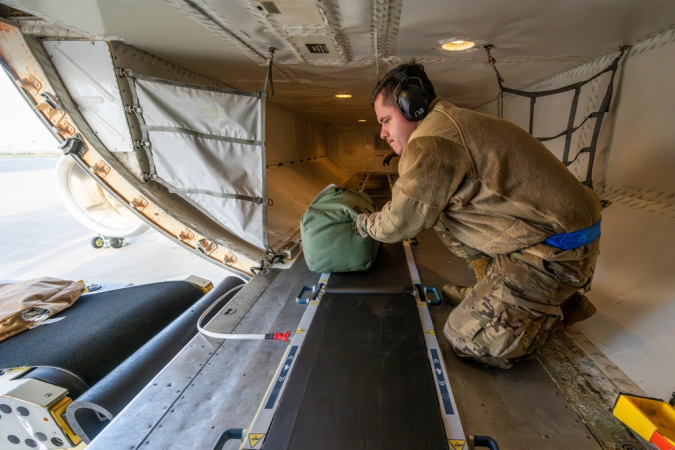President Donald Trump’s nominee for Chairman of the Joint Chiefs of Staff touted his highly unusual background for the job as an asset and reaffirmed his commitment to stay apolitical during a confirmation hearing before the Senate Armed Services Committee on April 1.
If confirmed, Lt. Gen. John “Dan” Caine would be the first Air National Guardsman to serve as the nation’s top military officer. He would also be the first Chairman to have never been a service chief or a combatant commander. U.S. law requires the Chairman to have that experience but says those requirements can be waived “if the President determines such action is necessary in the national interest.”
“Yes, Senators, I acknowledge that I’m an unconventional nominee. … For many Americans, I’m an unknown leader,” Caine said in his opening statement.
Yet, “these are unconventional times,” Caine added, and he asserted that his experience as the top military advisor to the head of the CIA was a close approximation to the kind of role he will play as Trump’s principal military advisor.
Caine also noted his time as a combat F-16 pilot in the Air National Guard, assignment with Special Operations Command, and even his experience as an entrepreneur as useful in directing tighter financial accountability from the services and attracting new entrants and startups to defense work.
The confirmation hearing served as the public’s first extended look at Caine, whose nomination came after Trump abruptly dismissed Air Force Gen. Charles Q. Brown Jr. as Chairman.
At the 2024 Conservative Political Action Conference, Trump recounted meeting Caine in Iraq in 2018 and seemed to say the general put on a “Make America Great Again” hat and said “I will kill for you.” At his hearing, however, Caine said he believed Trump “was actually talking about somebody else,” and that he has never worn “political merchandise or said anything to that effect.”
At other points in the hearing, Caine faced questions about how he would handle political pressure or unlawful orders. He reaffirmed that his loyalty is to the Constitution and emphasized that as Chairman, his role will be advisory, that he will not be in the chain of command to operators, and that it will be up to other officers to execute presidential orders.
Asked about the recent “Signal” controversy, in which senior administration officials discussed an imminent strike on Houthi targets in Yemen using the commercial, encrypted “Signal” messaging app instead of secure government channels, Caine said that if he had been included in the discussion, he would have raised concerns about the prospect of it being monitored by hostile entities.
“I think we all can agree that we need to always protect the element of surprise,” he said. “We protect our servicemen and women who are going into combat operations.”
Caine said his focus will be to urge and motivate the service chiefs to find faster ways to field technology that will preserve the nation’s military superiority, which he said is at risk as China improves its own military at a rapid pace.
“Our national defense requires urgent action and reform across the board. We must go faster,” Caine said. “We must move with a sense of urgency. We can never forget that our number one job is to create peace through overwhelming strength, and if need be, fight and win our nation’s wars.
Caine said he fully supports the modernization of the nuclear triad as the foundation of American security, including a new Sea-Launched Cruise Missile for the Navy. All of Trump’s top Pentagon nominees have voiced support for nuclear modernization thus far.
Middle East
Under questioning from Sen. Tom Cotton (R-Ark.), Caine said Iran should never be allowed to have nuclear weapons and that a nuclear-equipped Iran would be an “imminent and existential threat” to U.S. forces in the Middle East and possibly elsewhere.
Cotton, noting that Trump has said “there will be bombing” if Iran refuses to cooperate, asked Caine if he would provide “the best candid advice you can about viable military options and the likely consequences?”
“I think that’s what the job of the Joint Staff is to do, is to provide a range of options for the President to consider and then allow him to select whatever those options should work best for him,” Caine replied.
More broadly, Caine agreed with a statement from Sen. Angus King (I-Me.) that terrorism is not getting the attention it deserves.
“What I’m very worried about now is a resurgence of terrorism,” King said. “Syria potentially could become another base for ISIS. There are thousands of ISIS fighters in jails in Syria. If they’re released, that could be a major challenge. West Africa is now a major area of al Qaeda activity. … It doesn’t take many terrorists to create serious problems for this country and for people around the world.”
Caine agreed: “We have to keep pressure on the terrorists. … Unfortunately, we can never take our eyes off of it completely. The challenge that somebody would want to do harm to us or to our interests around the world is not going to go away anytime soon.”
Air Force Issues
If confirmed, Caine would be the sixth Airmen to be Chairman, and during his confirmation hearing, service issues came up a few times.
Sen. Mike Rounds (R-S.D.) asked about the possibility of increasing the Air Force’s fleet of new B-21 bombers from its current plan of 100 aircraft to 200, but Caine said he needed a chance to study the requirement.
“After the analysis portion … I’d like to speak to the other joint chiefs and the combatant commanders whose requirements Raider will fulfill before I commit to supporting any particular number of B-21,” he said. Pressed, he said he “would not hesitate” to recommend buying more if the analysis supports such a decision.
Sen. Kevin Cramer (R-N.D.), meanwhile, brought up intelligence, surveillance, and reconnaissance in one of his questions, saying “the Air Force specifically has been on a mission to eliminate ISR as one of the key missions. It’s disappeared even as a term in several of their documents in recent years,” and that each service needs more resources so that it can do its own ISR.
“ISR and the ability to have indications and warnings to make decisions for commanders … is a key and essential part of our overall ability to execute the missions that we must do,” Caine replied, without getting into specifics.
